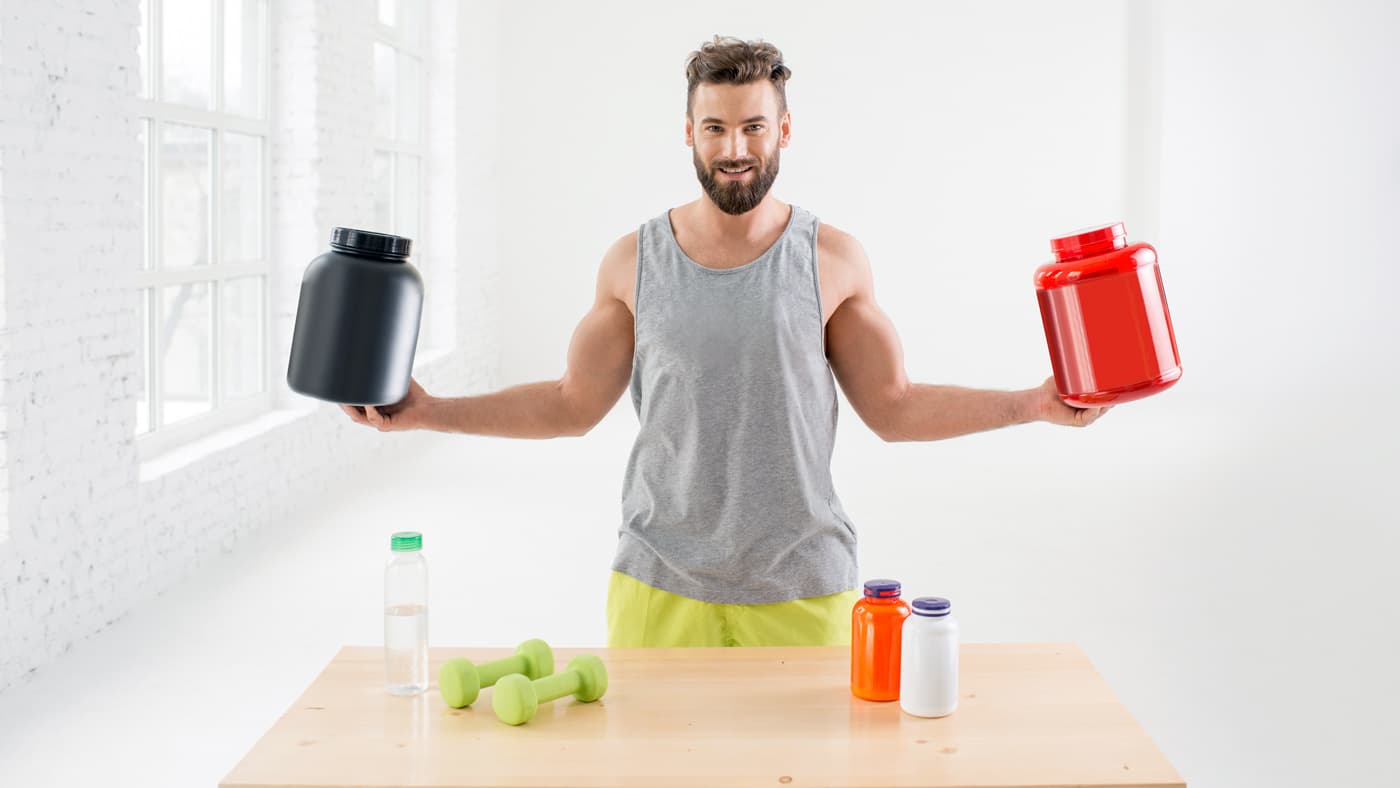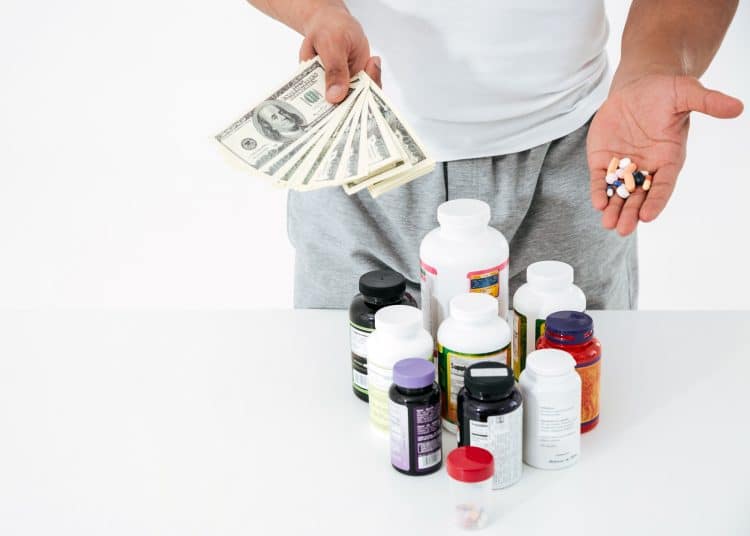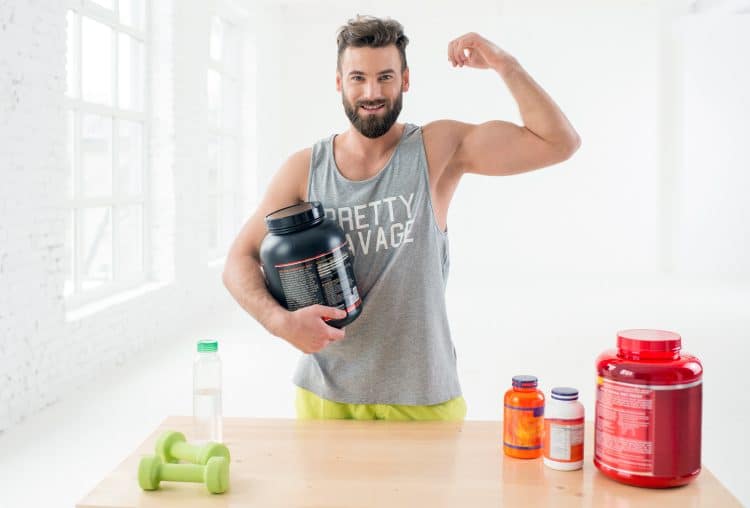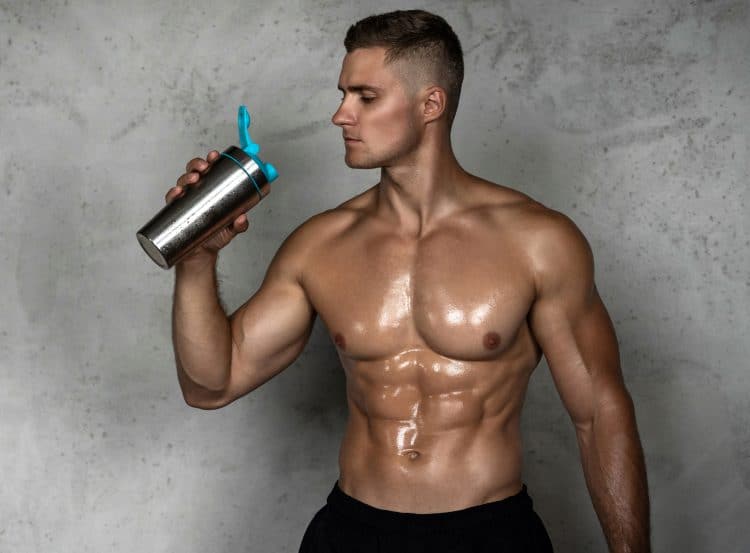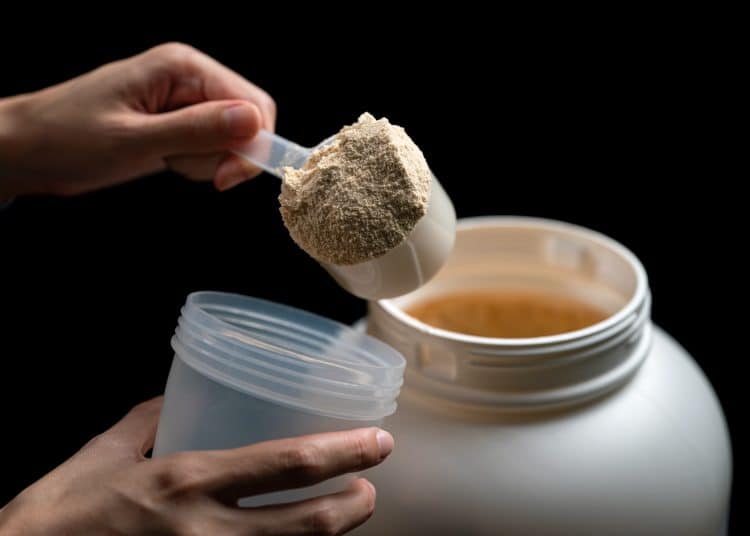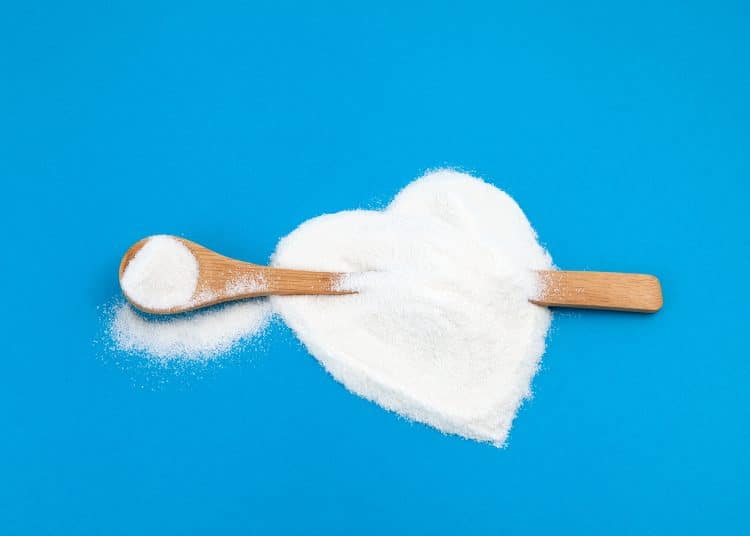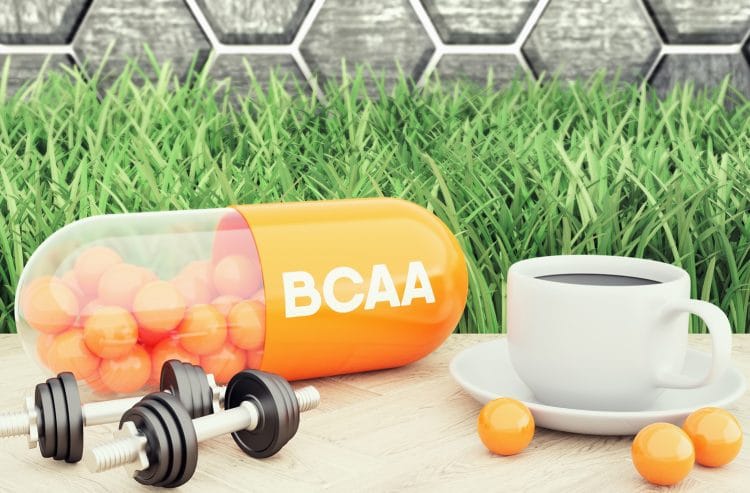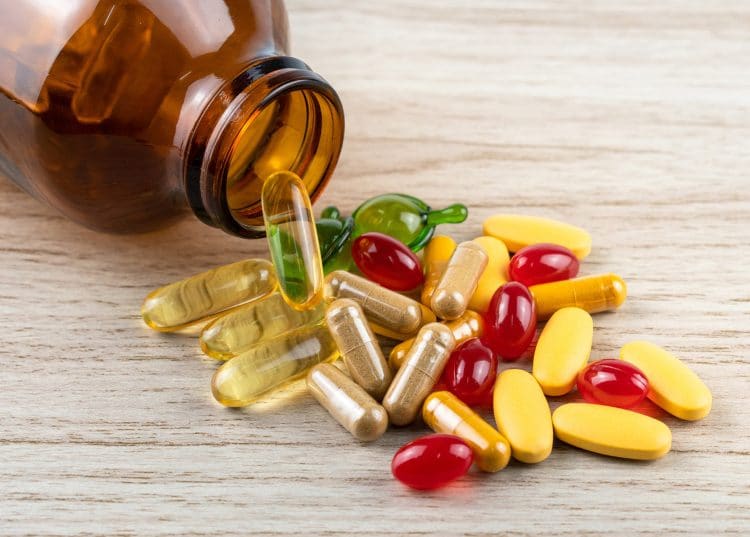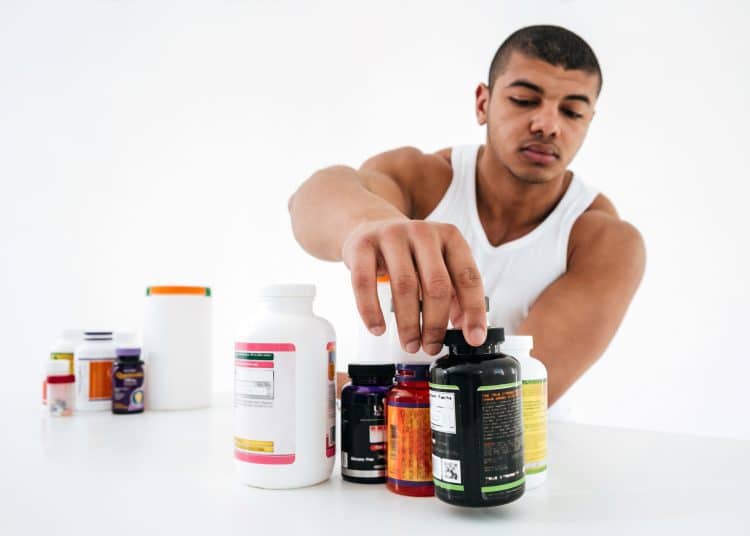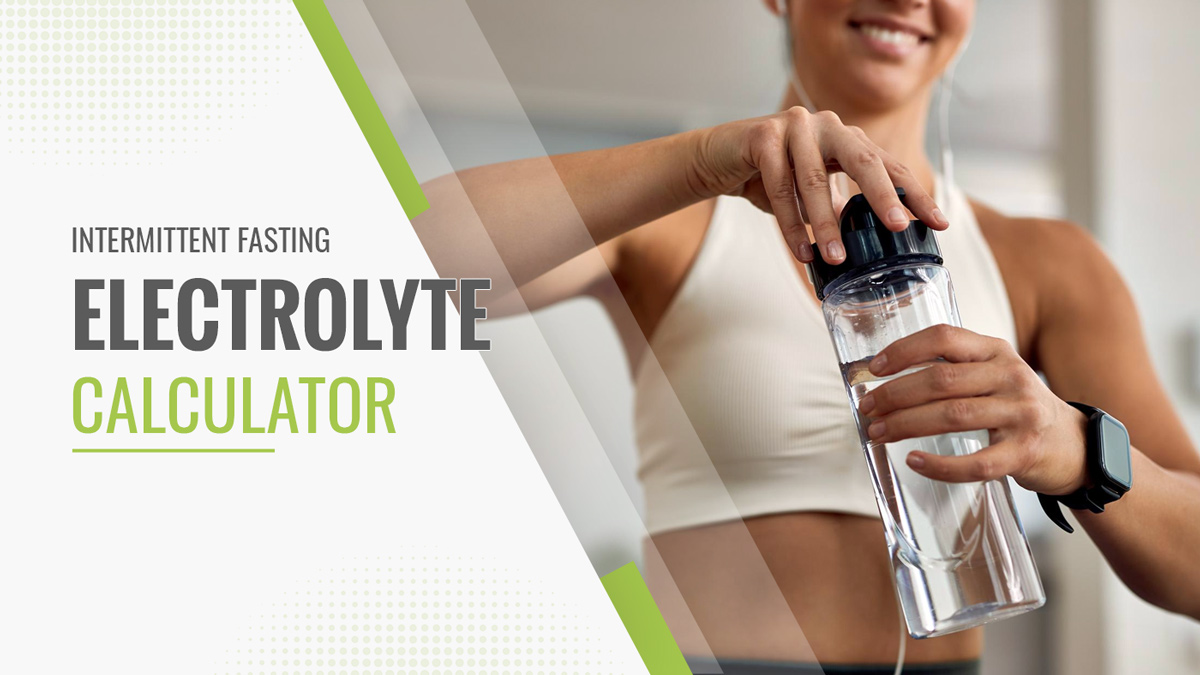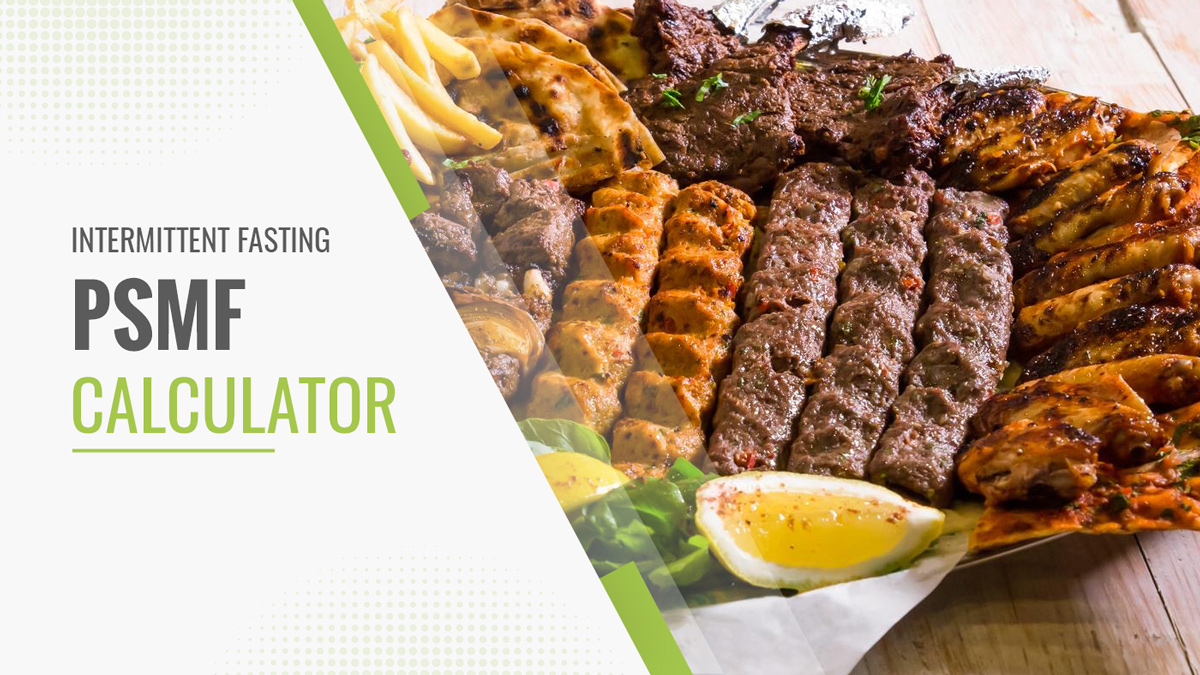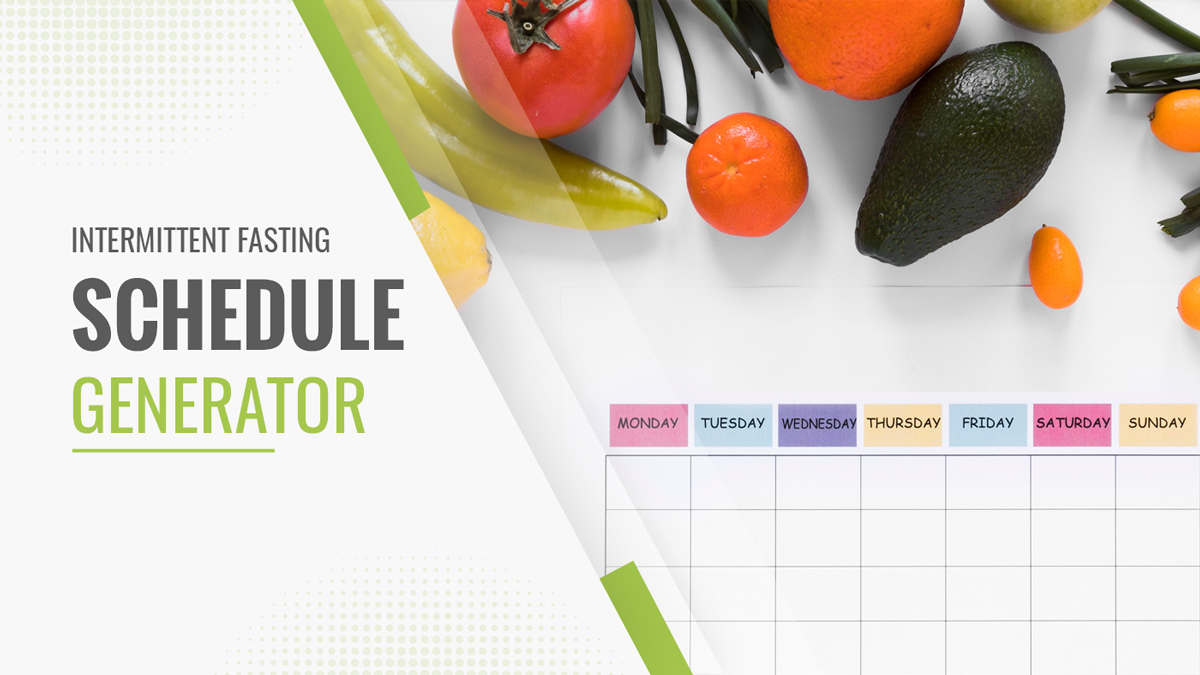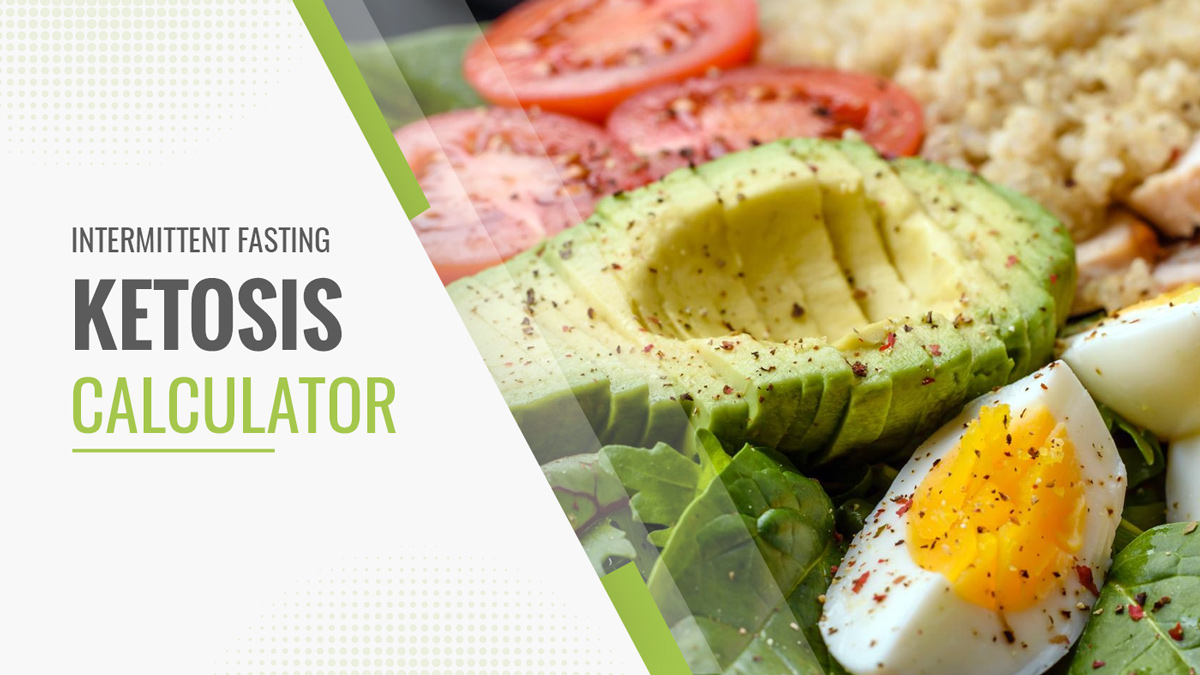People have been successfully lifting weights to build muscle and get stronger for hundreds of years. There are examples of formalized strength training in many ancient civilizations, including Greece, Rome, India, and parts of Europe.
Without the benefit of things like pre-workout energizers, BCAAs, fat burners, creatine, and protein powder, the lifters of yesteryear got big and strong following a pretty standard diet. They ate the foods available locally rather than exotic “muscle-building” foods.
Fast forward to the 21stcentury and, if you believe the fitness magazines and bodybuilding websites, the only way to reach your true muscular potential is to take handfuls of supplements.
It’s clear that sports nutrition has advanced significantly over the last few decades. However, humans themselves have not really evolved all that much since old-time strongmen built incredible strength and muscle size without using supplements. If they could get bigger and stronger consuming nothing but real food, then you can do it too.
That’s not to say supplements are worthless or don’t work. There are plenty of products that could help you make faster progress. However, that doesn’t mean you HAVE to use them. Supplements are optional and not compulsory.
In this article, we discuss why supplements aren’t for everyone and how you can get the nutrients you need from natural sources.
Reasons NOT to Take Supplements
There are several reasons you might choose not to use supplements, including:
Cost
Supplements can be expensive. If you are on a budget, you are be better off spending your hard-earned cash on food and a gym membership and not a bunch of pills and powders. After all, diet and training are the foundations on which your success is built.
Related: Eat like a Pro Bodybuilder on a budget
Availability
Depending on where you live, you may not have ready access to certain supplements. For example, supplements that are available in the USA are not always for sale in Europe and vice versa.
Side Effects
While supplements are generally safe to use, some people may experience side effects with certain products. For example, if using a pre-workout leaves you feeling anxious and itchy, any benefits may be outweighed by the drawbacks. Some supplements may also interact negatively with certain types of medication.
You Keep Forgetting to Take Them
Some supplements have an accumulated effect. That is to say, you need to take them regularly so they can build up in your body and work their magic. If you are one of those people who keeps forgetting to take their supplements, you might as well save your money and skip them entirely.
Health Concerns
The supplement industry is HUGE, and yet, it’s largely unregulated. While there are reputable sports nutrition companies that make great products, there are also plenty of fly-by-night operations producing questionable supplements that could do more harm than good. For this reason, some people simply prefer to go the natural route and not use any supplements.
Lack of Evidence
While supplements like creatine have been studied extensively, others have not. In some cases, the only evidence that a supplement works comes directly from the manufacturer rather than from independent studies.
Needless to say, an unscrupulous sports nutrition manufacturer may inflate the effectiveness of their products just to sell more units. If you do choose to use supplements, look for independent studies supporting their efficacy.
False Advertising
Some supplement companies use questionable advertising tactics to sell their products. Studies are often funded by the manufacturer themselves, so the results may be skewed to make the product appear more effective than it really is.
Also, adverts often feature models that a) don’t even use the product they’re promoting and b) are on steroids anyway! Some people may steer clear of supplements simply because they don’t want to support this kind of advertising shenanigans, or they don’t trust supplement companies in general.
Poor Results
Even the best supplement will only have a minor impact on your progress. After using a supplement, you may just decide that it’s not effective enough to be worth using.
Whatever your reasons, be reassured that you can still build muscle, get stronger, and burn fat without supplements.
How to Build Muscle Without Supplements
Here are a few nutritional strategies you can use to build muscle without resorting to dietary supplements.
Pre-workouts
Pre-workouts are incredibly popular. Taking a scoop or two before training can help you power through your program, doing more reps and lifting heavier weights in the process. A lot of lifters are very reliant on pre-workouts.
Pre-workouts contain a blend of energizing ingredients, but the most potent is caffeine. Pre-workouts often contain 200-300mg of caffeine per serving, which is the same amount as 2-3 cups of coffee.
Caffeine alone is a great pre-exercise energizer that’s been shown to boost workout performance. In fact, until the 1960s, caffeine was on the International Olympic Committee’s list of banned substances!
So, give your workout a boost by chugging down a couple of cups of strong coffee before you start. Or, you could whip up a shot of “prison pre-workout” by adding a couple of teaspoons of freeze-dried coffee to a can of Coca-Cola. While this concoction tastes terrible, it will give you the energy boost you need.
Related: How to make your own pre-workout drink
Protein Powder
If you want to build muscle, you need to consume enough protein. How much is debatable, but around one gram per pound of body weight is a good goal for most lifters.
Related: Protein Calculator
While you should be able to get all the protein you need from real food, i.e., chicken, fish, beet, eggs, dairy, etc., that’s not always convenient, which is why protein powder is so popular.
However, with a bit of planning, it’s actually pretty easy to get all the protein you need from real food. Just make sure you include a sizable portion of high-protein food in each of your three main meals, and snack on protein 2-3 times a day. For example:
- Breakfast – eggs + wholemeal toast
- Snack – tuna pouch + apple
- Lunch – grilled chicken + salad
- Snack – beef jerky + banana
- Dinner – ground turkey + potatoes, spinach, green beans
- Snack – cottage cheese
If you can’t eat your protein, you can still drink it. Providing you are okay with dairy and lactose, just chug down some milk. That’s what a lot of old-school bodybuilders did. As an impoverished student, I used to mix skimmed milk powder with regular milk to make my own high-protein drinks.
So, while protein powder makes getting enough dietary protein easier, with a little planning, you should have no problem consuming all you need via real food.
Creatine
Creatine of all the supplements currently available, creatine is probably the most widely used. It’s been around for well over 20 years, which means it definitely works. Creatine has also been thoroughly studied, so we also know it’s safe.
But did you know that creatine is a) a naturally occurring substance and b) found in many staple bodybuilding foods? It’s entirely possible to get plenty of creatine without relying on creatine supplements.
The best natural sources of creatine include:
| Food | Creatine/100 grams |
| Herring | 1.1g |
| Beef | 0.9g |
| Salmon | 0.9g |
| Pork | 0.7g |
| Black pudding (blood sausage) | 0.6g |
| Dry-cured ham | 0.6g |
| Lamb | 0.5g |
| Chicken breast | 0.4g |
| Tuna | 0.4g |
Most people need about five grams of creatine per day to notice any effects. If you build your diet around the foods listed above, you should be able to achieve that intake without taking supplemental creatine.
BCAAs and Amino Acids
Amino acids are the building blocks of protein. Your body uses amino acids for muscle repair and growth. Many exercisers like to take amino acids to ensure that they have all the materials they need to recover from their intense workouts. BCAAs (branched-chain amino acids) are especially popular as they are heavily catabolized during training.
However, you don’t need to consume amino acids in supplement form because they are present in every high-protein food you already eat. For a food to be considered a protein, by definition, it must contain all the essential amino acids. By eating enough protein, your body can manufacture the amino acids that aren’t in your diet.
So, don’t worry that you aren’t getting your amino acid fix without supplements; just keep pounding down the high-protein foods, and you’ll be fine.
Multivitamins and Minerals
Exercisers often believe that they need more vitamins and minerals than non-exercisers and take multivitamins and minerals to plug any dietary gaps. While this does make a certain amount of sense, if you eat healthily, you should have no problem meeting your nutritional needs without supplements.
The most abundant source of vitamins and minerals in your diet is vegetables and fruit. A bodybuilding diet should be a healthy diet, and that means plenty of plant foods at most meals.
Try to consume a minimum of five and closer to ten servings of fruit and vegetables per day to make sure you get all the micronutrients your body needs. Like getting enough protein, this will require some planning and organization, but it’s not that hard once you get used to it. No time to cook? Most fruit and many vegetables can be eaten raw, so that’s not really a valid excuse.
As an added benefit, all that fruit and veg is packed with fiber, which is crucial for your digestive health.
Fat Burners
If you are trying to get ripped, you may use a fat burner to increase your metabolism and ward off hunger. However, even the most potent product will have a tiny impact on fat burning and weight loss, and you can easily replicate its effect with real food.
- Drink plain black coffee, tea, or green tea to get a useful hit of metabolism-boosting caffeine. Most fat burners are high in this popular stimulant.
- Add cinnamon powder to your carb-based meals to increase insulin sensitivity and keep your blood glucose levels stable for faster fat burning.
- Use pepper, chili powder, and other warming spices to increase thermogenesis and burn more fat.
- Drink water before and between meals to feel fuller, sooner.
- Eat protein and fiber at every meal to help manage your appetite. Protein is also potent thermogenic.
- Remember to reduce your calorie intake to create the energy deficit necessary for fat burning and weight loss. If you fail to do this, even the best fat burner is redundant.
Wrapping Up
While some supplements are useless and nothing but a waste of money, others can help you on your quest to build muscle, get stronger, or lose fat. However, a supplement should always be considered as additional to and not a replacement for a healthy diet and well-designed workout program. Your priorities should always be your diet and workouts.
That said, you don’t have to take supplements if you don’t want to, and you should still be able to make excellent progress if you choose not to use nutritional supplements. In many cases, the effect of supplements is so small that the cost far outweighs any benefits.
While supplements can provide a convenient way to get the nutrients you need, they can also make you lazy. Instead of following a healthy diet, a lot of people eat junk and then attempt to prop their diet up with powders and pills. This doesn’t work.
Use the information in this article to help you build muscle without relying on supplements.
Tip: If you're signed in to Google, tap Follow.


